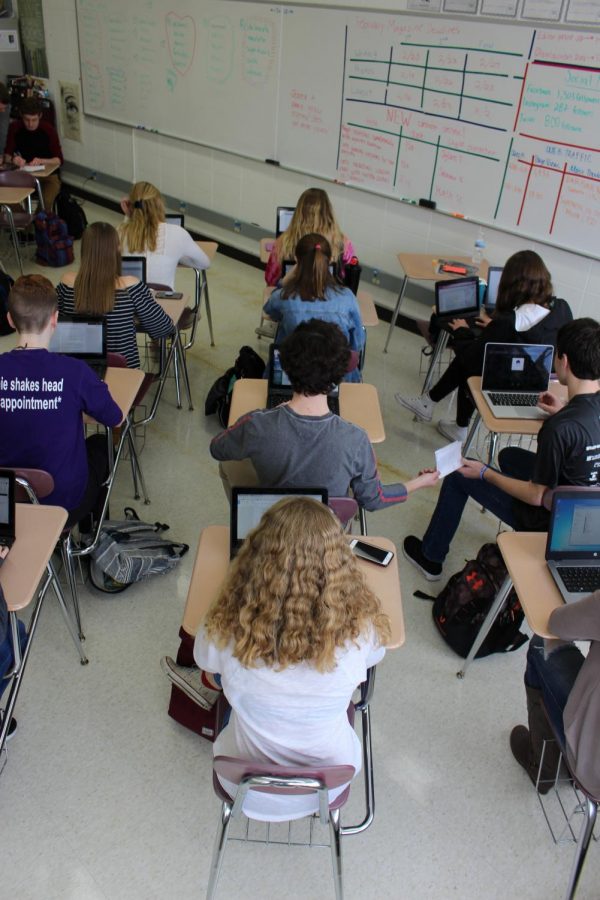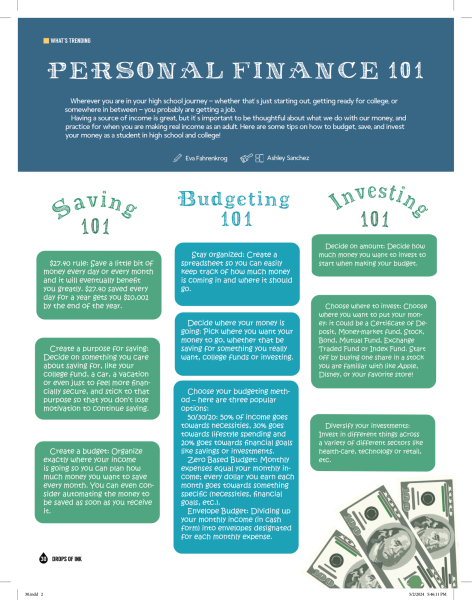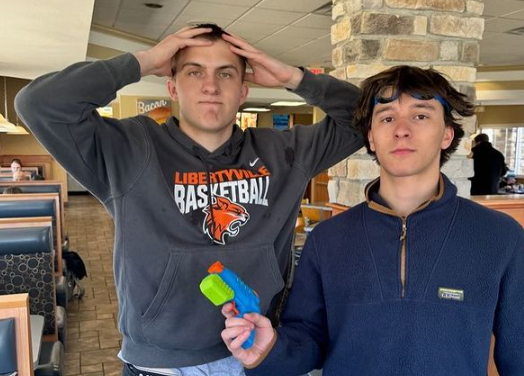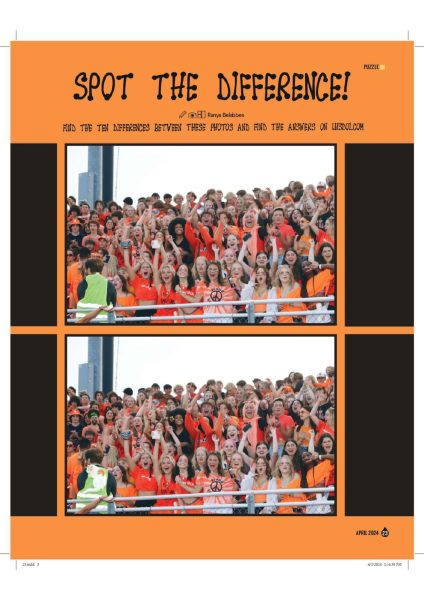The Heat to Cheat
Modern technology, especially cell phones, have had a major impact on how students cheat. Phones in particular can be used for sending answers to tests and homework.
Note: For the purpose of this article and its discussion of academic dishonesty, all students interviewed are quoted anonymously, aside from their grade and gender. They are identified with fake names for the protection of their privacy.
It is no question that in the LHS Student Handbook, cheating is against the rules. As the handbook states, “Any situation where a student is found to be cheating or plagiarizing may result in no credit for the particular assignment and the LST will be notified with each incidence of cheating. Repeated cheating incidents may result in a failing grade for the course and/or LST imposed consequences and may impact participation in school activities/athletics.”
However, students across the school continue to cheat on quizzes, tests and even final exams. While the act of cheating is not limited to specific grades or groups of students, the methods in which students cheat are quite variant. Each student has a different personal reason behind why they cheat, and each student has a different story behind how they have or have not been caught.
The Reasons Behind Cheating
Gavin, a junior, didn’t know he was going to cheat on his math quiz when he walked into class that day; just like how Penelope, a junior, didn’t know she was going to be cheating on her Spanish vocab quiz. As Gavin explained, while it may be methodical for some students, he never actively planned when and where he was going to cheat; he would normally cheat when he was stressed and unprepared for a certain quiz.
“It’s usually when I’m stressed out, or I have some [subject] I really don’t understand. At that point, when I’m really nervous, that’s usually when I [cheat]. I’d say it has been three or four times where I’ve been like, ‘I don’t know this, therefore maybe extra help would help me,’” Gavin stated.
For him, the extra help came from Google Classroom resources he pulled up on his phone during the quizzes, where he would use example problems to try and help him understand the concepts and equations in the quiz questions.
However, when Penelope cheats, she rarely does so using her phone; often she’ll use small post-it notes with pre-written answers or look off of the work of her peers during tests and quizzes. She emphasized how she doesn’t feel confident enough in her work to complete some tests and quizzes on her own and how the constant pressure to have successful grades contributes to her cheating.
“I just hear the school saying ‘honor roll, A’s, B’s, National Honor Society,’ and all of that going around. I feel pressured to be in a high percentile…All of my friends are insanely smart and they get good grades and they’re in all AP classes, and I think the atmosphere of the school, with Libertyville being very above average, I feel like I need to keep up with that. With [my] lack of confidence, I felt like I need to keep up with everyone,” Penelope explained. “That [is] my struggle. I’m stressed about being [unsuccessful] and not getting into college; I want to get into a decent college, and I want to get decent grades and I want to have a good future.”
All of the students interviewed emphasized that the stress within the LHS community to maintain certain grades for colleges, scholarships and academic awards contributes not only to their cheating but other students’ cheating as well.
Corey, a senior at LHS, noted how many of his peers cheat, including himself, and often the cheating is just to bump their grades up a little bit higher for a better-looking GPA.
“I feel like if school puts so much stress on doing well, I’d rather do well than not do well…I’ve always been able to maintain a 3.4 or 3.5 GPA, but I’ve always felt like I should cheat because having good grades is a good thing. That’s what I always think,” Corey stated.
He further explained how although he cheats often, he never uses his phone or a secret cheat sheet; instead, Corey will normally look off of the answers from his peers and copy them down as his own.
However, not all students who have cheated at some point in their high school careers still feel the need to cheat regularly. Anya, a senior, expressed how her improved effort towards studying for classes made the lessons more enjoyable, without the need for cheating anymore.
“In my previous years of high school, I didn’t really get math, so I would just cheat. Now, it’s different…I mean, just like wanting to do [well] in school and wanting to actually learn the information and actually [understand] the information; it definitely changed my scope because I like math now,” Anya emphasized.
Similar to how there are many different ways students cheat, the teachers understand that there are many different reasons as well. Mrs. Rende, a math teacher at LHS who caught several students cheating earlier this year, explained that she feels students cheat because “it’s the instant gratification. [A student thinks], if I [cheat], I can get this one thing off of my plate,’ instead of looking at the bigger issue of maybe [students] have some time management issues right now, maybe [they] need to relook at how [they’re] spending their time doing all of these assignments,” she noted.
Caught Cheating
While students are not always caught cheating, those who are often suffer the consequences. Both Penelope and Gavin were caught cheating, and by the time they were caught, they’d already cheated on multiple quizzes or tests throughout the past school year.
Penelope was caught plagiarizing on an in-class essay in her English class, where her teacher noticed distinct similarities between her essay and example essays from an AP prompt. She emphasized how being caught strongly impacted her, and it made her feel worse about the struggles she had in school.
“Of course I felt guilty, and I couldn’t stop thinking about it for a while. Guilt was just the main thing I felt because I know it was [wrong] and I really didn’t need to [cheat] and there are bigger problems in the world instead of getting a bad grade on a practice test. I felt guilty that I needed to cheat and betray my teacher,” she explained. Penelope was given half credit for her essay, which she said brought her grade down about 4 percent. She has not cheated in her English class since.
Mrs. Anne Singleton, an English teacher at LHS, noted how she has caught her freshman and sophomore students plagiarizing or cheating off of one another multiple times, and highlighted how awful she feels when she discovers such an occurrence.
“‘Soul-crushing’ is probably a good word to describe it. I feel like I have failed my students so much when [they cheat], and I feel so hurt that the students didn’t feel comfortable enough to come talk to me,” she said. “I think when students plagiarize, it’s sometimes [due to] a feeling of inadequacy, that their writing isn’t good enough…I just think [they] could’ve told me that [they] needed more time, or [they] needed some help.”
Many of the students interviewed echoed this sentiment, as each time they cheated they felt continuously guilty and wished that they had just spoken to their teachers as opposed to cheating. For Gavin, the cheating was not worth getting caught, as it only made him feel worse.
After Gavin was caught cheating, he was confronted by his math teacher as well as his dean; yet, he was still able to finish his test after he got his phone taken away.
“It wasn’t a good feeling because I instantly knew it was going to go to my parents and then it’s also going to look bad [to] everyone that knows me. I don’t think I’m that type of person, but obviously doing something like [cheating] would make people think things about you, like not being very honest, but that’s not who I am,” he explained.
However, not all students feel that same guilt after cheating, nor have all students been caught cheating. Corey strongly voiced his indifference towards cheating, concluding that not only has he never been caught cheating in high school, he’s never felt guilty for it either.
“Teachers always give the spiel about how ‘you should be proud of your own work,’ but I don’t know, I’ve never thought like that. I’ve never felt bad about cheating,” he explained.
Anya, while never caught cheating, expressed that she still has felt occasionally guilty because “it’s taking someone else’s work and using it as your own,” she explained. “If you didn’t prepare yourself for the material, and you don’t know it, then you shouldn’t cheat.”
As those interviewed expressed, cheating contributes to students’ connections across the school, whether it be sending worksheets in group chats or telling each other quiz answers. Even though they know it is against the rules, many students do it because they want to get better grades, in hopes for better opportunities in the future. Yet Mrs. Rende explained that cheating doesn’t make or break a student’s life, nor does it define them.
“One bad decision doesn’t make you a bad person. If something happens, and it does happen in my class, and you get caught, that doesn’t mean I automatically think you’re a terrible person,” she emphasized. “I feel like if you make that decision [to cheat], you need to own up to it and then we can get past it and talk about why you made that bad decision… I think how you handle the situation says a lot about [you].”











